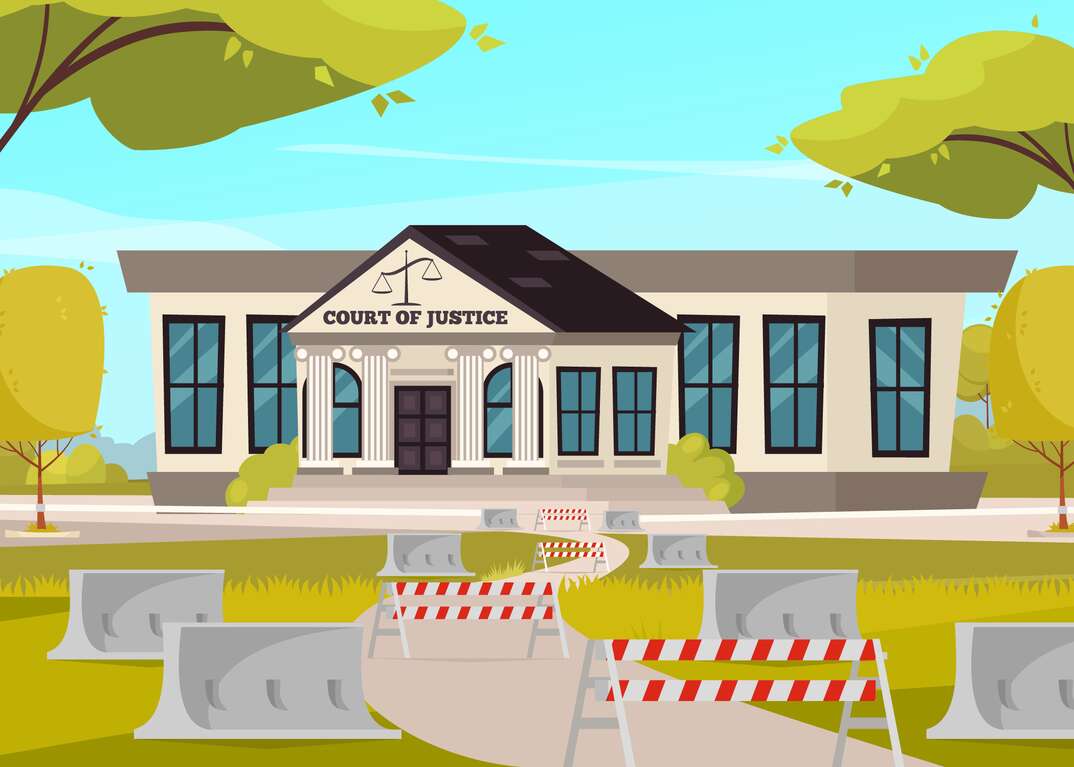- AppliancesElectriciansHVACLandscapingLocksmithPest ControlPlumbingRenovationRoofingT V RepairAll Home Improvement
- Car AccidentClass ActionCorporate LawCriminal DefenseDivorce LawEmployment LawFamily LawFinancial LawLegal AidMedical Injury LawyersMedical MalpracticeReal Estate LawWater Fire RestorationAll Legal
- InvestmentRetirementAll Finance
- Animal InsuranceAutoGeneral InsuranceHealth PolicyHome RentersAll Insurance
- DentalHealth SpecialistsAll Medical
- Animal CareVeterinaryAll Pets
- Auto GlassTowingAll Automotive
What Is Obstruction of Justice?

Obstruction of justice is a term many people know from organized crime movies and legal dramas. If someone tampers with the witness in a case, such as by threatening them, it's a form of obstruction of justice.
However, this legal term covers much more than witness tampering. Learn about the full definition of obstruction of justice — and what consequences might occur if you are convicted of this crime.
Legally, obstructing justice refers to acts that are meant to impede or stop any official government proceeding. Obstructing an official proceeding often does refer to the proceeding of criminal law, but it can also relate to other matters.
There are many laws about obstruction of justice at the federal and state levels. It is a crime, which means that you can be charged with it and face criminal penalties if you are convicted.
What Are Some Examples of Obstruction of Justice?
Some examples of obstruction of justice include:
- Inappropriately influencing the outcome of a jury trial — in either a criminal or civil matter. Examples of this type of influence can include bribing or threatening jurors or judges.
- Obstructing witnesses: If you take action to keep witnesses from presenting the truth as they know it on the witness stand, you may be obstructing justice. Some examples include bribing witnesses or threatening them or their family members.
- Tampering with evidence: People also are not allowed to obstruct evidence from being presented at trial except through legal channels, such as motions. Examples of illegal activity may include destroying or hiding evidence.
- Obstructing congressional activity: It is illegal to force or tamper with congressional activities, including voting, by using threats or force.
Yes, obstruction of justice is a crime. Depending on the nature of the case and the type of activities related to the obstruction, it can be a state- or federal-level crime and a felony.
More Related Articles:
- When Do You Need a Lawyer? Determine If You Need to Hire an Attorney
- What Is a Class-Action Lawsuit?
- What Is a Misdemeanor?
- What to Do After a Car Accident
- What Is Power of Attorney?
What Are the Consequences of Obstruction of Justice?
The consequences of an obstruction of justice conviction depend on factors such as the type of activity involved, the nature of the activity being obstructed and what jurisdiction you're in.
According to the Cornell School of Law, federal obstruction of justice crimes carry pretty serious consequences:
- Obstruction of judges, jurors or other officers of the court can come with a sentence of up to 20 years in prison.
- Tampering with witnesses or evidence can come with a sentence of up to 30 years in prison.
- Obstructing a congressional proceeding or other federal agency proceeding can come with a sentence of up to five years in prison.
Obstruction of Justice Vs. Contempt of Court
Contempt of court is a slightly different crime than obstructing justice. Contempt of court occurs when you fail to obey a court order or cause issues within a court that interfere with orderly proceedings.
For example, if a court orders someone to attend anger-management classes, failing to attend classes within the timeline set by the court might be contempt of court. Or if someone is constantly interrupting the judge in court and has been warned not to do it, they might be fined for contempt of court.
The consequences for contempt of court can range from fines to time in jail.
In either case — obstruction of justice or contempt of court — speaking with an experienced lawyer about your case can be a good idea.
Elocal Editorial Content is for educational and entertainment purposes only. The information provided on this site is not legal advice, and no attorney-client or confidential relationship is formed by use of the Editorial Content. We are not a law firm or a substitute for an attorney or law firm. We cannot provide advice, explanation, opinion, or recommendation about possible legal rights, remedies, defenses, options or strategies. The opinions, beliefs and viewpoints expressed by the eLocal Editorial Team and other third-party content providers do not necessarily reflect the opinions, beliefs and viewpoints of eLocal or its affiliate companies. Use of the Blog is subject to the
Website Terms and Conditions.The eLocal Editorial Team operates independently of eLocal USA's marketing and sales decisions.



